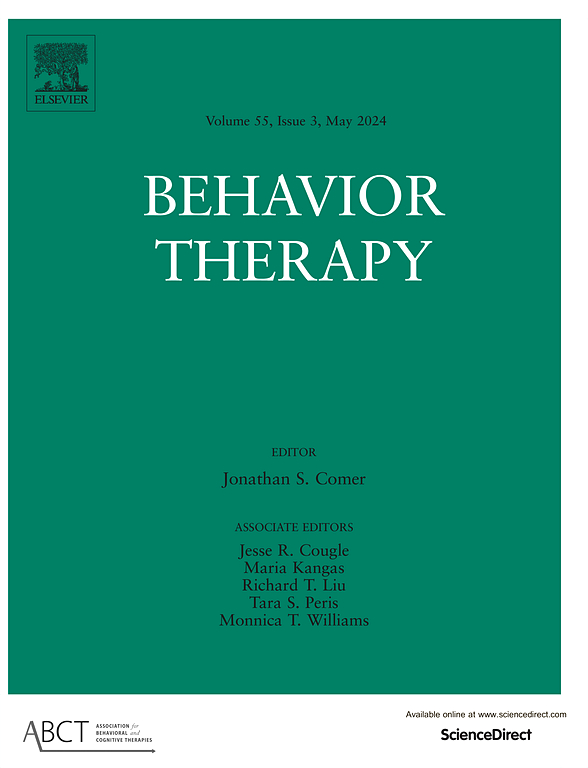
Abstract
According to the metacognitive theory, maladaptive metacognition is associated with the development and maintenance of emotional disorders. This study is the first to explore maladaptive metacognition in a sample of children and adolescents (7-17 years) with obsessive-compulsive disorder (OCD) in the context of cognitive behavioral therapy (CBT). A total of 114 children and adolescents were included in the study. Of these 56 were OCD patients who were assessed on metacognition (Metacognitions Questionnaire – Child Version) and OCD symptom severity (Children’s Yale-Brown Obsessive Compulsive Scale) before and after 14 sessions of individual CBT. Fifty-eight children and adolescents without any psychiatric diagnoses constituted a control group and were assessed on metacognition temporally corresponding to the OCD group. Results showed that the OCD group had significantly elevated maladaptive metacognition relative to the control group with the exception of positive beliefs about worry. The maladaptive metacognition in the OCD group was significantly reduced from pre- to post-treatment. Additionally, the reduction in the total level of maladaptive metacognition was significantly larger than that reported by the control group. However, it remained significantly elevated relative to controls at post-treatment. Furthermore, lower post-treatment OCD severity was associated with larger reductions in negative beliefs about worry, beliefs about the need to control thoughts, and cognitive self-consciousness, as well as with a higher pre-treatment level of positive beliefs about worry. Overall, age group (children vs adolescents) did not moderate these results. Collectively, the results suggest that amending maladaptive metacognition in children and adolescents with OCD might be important considering the associations between reductions in maladaptive metacognition and favorable treatment outcome.
Read the full publication here: https://www.sciencedirect.com/science/article/pii/S0005789424000595?via%3Dihub